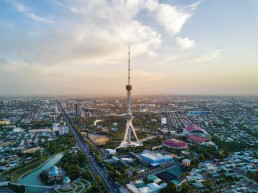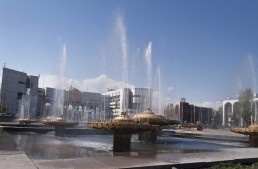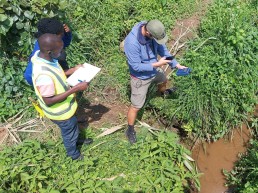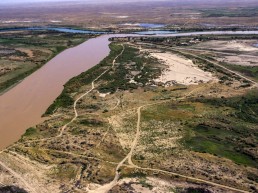February 4, 2022
HYDROPHIL’s Journey in Central Asia

London (EBRD), Washington (The World Bank), New York (UNICEF), Rome (FAO), Brussels (EU) and Manila (ADB); it may be the global headquarters of international organisations defining the policy frameworks, but it’s the local level where projects have to be implemented. HYDROPHIL plays a vital role here as an ‘honest broker’ providing a link between the international institutions and the local municipalities and regions.
It’s HYDROPHIL’s ability to successfully bridge this immense institutional distance that forms the backbone of its great success, especially in Central Asia. Such success is only possible through an innovative engagement strategy consisting of
- Relationships built on trust over many years while working with international financial institutions (IFIs) and in the implementation of their guidelines consistently.
- Intensive capacity building of local authorities and clients leading to the successful implementation of innovative technical solutions
- Thorough training of local experts and familiarisation of local companies with European standards
Consistently following and successfully fulfilling the above-mentioned strategy over many years is the outstanding performance feature of HYDROPHIL.

Since early 2000, HYDROPHIL has had an eye on Central Asia because of vital infrastructure development needs, which was a consequence of the collapse of the Soviet Union. HYDROPHIL’s journey in Central Asia started in the Kyrgyz Republic in 2005 while working on a sanitation project in Bishkek and Osh. We improved sanitary conditions and residents’ livelihoods in low-income settlements, the Novostroykas. [World Bank contracted]
From 2006 until 2008, HYDROPHIL continued its journey in the Kyrgyz Republic and Tajikistan by identifying mitigation and adaptation options on land and water use. Between 2009 and 2011, HYDROPHIL reviewed and analysed the impact of climate change on the future flow of the upper Amu Darya River in Tajikistan and generated simulations of future streamflow for different climate scenarios. Tens of millions of inhabitants depend on irrigated water sourced from this river basin. [Food and Agriculture Organization of the United Nations commissioned]
Between 2012 and 2014, our team worked on improving renewable energy infrastructure in Tajikistan by preparing plans to rehabilitate the 126 MW Kairakkum Hydro Power Plant for the national Power Company Barki Tojik [European Bank for Reconstruction and Development (EBRD) financed]
In 2015, we started our engagement in Kazakhstan – right away in the capital with the analysis of the operational performance of the Nur-Sultan water company and prepared a priority investment plan for water supply and wastewater. [EBRD commissioned]
Then, from 2016 until 2019, HYDROPHIL supported the Government of Kazakhstan in implementing a new national-wide incentive-based tariff system for the water supply and wastewater sector. This modern, performance-based regulation framework was designed for the capitals of the 14 Kazakh provinces. [EBRD funded]
From today until 2023, we are a member of a team that sets up the Kazakh Green Economic Financing Facility. This facility provides USD 30 million for private financing investments in sustainable energy and resource-efficient technologies. [EBRD-financed]
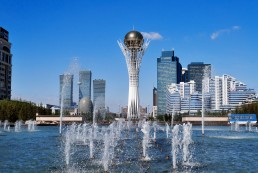
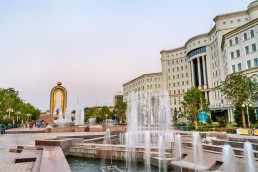
Since 2016, HYDROPHIL has been continuously working on projects in the Kyrgyz Republic, and today we are implementing seven individual infrastructure projects in small towns simultaneously. All projects focus on rehabilitation works of urban water supply and wastewater systems for more than 300,000 inhabitants and are worth 36 million euros investment. [European Union Investment Facility for Central Asia and EBRD funded]
In 2020, we started to enter the Uzbek market when preparing a significant water infrastructure project for the Tashkent Province and a population of 2.8 million. [Asian Development Bank contracted]
Lastly, the most recent stops on HYDROPHIL’s journey in Central Asia are in Tajikistan and the Kyrgyz Republic. HYDROPHIL is currently developing the Tajik National Water Supply and Sanitation Program for the entire country, which will leverage hundreds of million euros for the water sector in the future [funded by the World Bank]. In the Kyrgyz Republic, our newest project is scheduled to begin very soon, where HYDROPHIL will provide project implementation support for the rehabilitation of the wastewater system in the City of Naryn. [EBRD funded]
Since the beginning of HYDROPHIL’s journey in Central Asia, we have seen an enormous development dynamic in the region. We want to continue contributing with our expertise.
